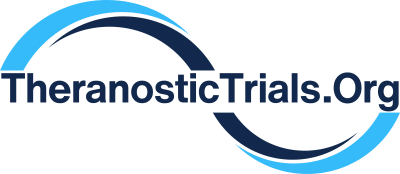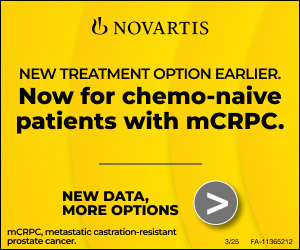Filters
(5 results)
Study Types
Enrolling Status
Study Sponsor Type
Leukemias
Study Status
Last Updated: Tue Jul 15 2025
Pharmaceutical Trials (Site Sponsors)
Investigator Trials
Pharmaceutical & Investigator Trials (Non-Site Sponsors)
NCT03670966
A Phase I/II Study Evaluating Escalating Doses of 211At-Labeled Anti-CD45 MAb BC8-B10 (211At-BC8-B10) Followed by Related Haplo-Identical Allogeneic Hematopoietic Cell Transplantation for High-Risk Acute Leukemia or Myelodysplastic Syndrome (MDS)
This phase I/II trial studies the side effects and best dose of a radioactive agent linked to an antibody (211At-BC8-B10) followed by donor stem cell transplant in treating patients with high-risk acute leukemia or myelodysplastic syndrome that has come back (recurrent) or isn't responding to treatment (refractory). 211At-BC8-B10 is a monoclonal antibody that may interfere with the ability of cancer cells to grow and spread. Giving chemotherapy and total body irradiation before a stem cell transplant helps stop the growth of cells in the bone marrow, including normal blood-forming cells (stem cells) and cancer cells. When the healthy stem cells from a donor are infused into the patient, they may help the patient's bone marrow make stem cells, red blood cells, white blood cells, and platelets. Sometimes the transplanted cells from a donor can attack the body's normal cells, called graft versus host disease. Giving cyclophosphamide, mycophenolate mofetil, and tacrolimus after a transplant may stop this from happening.
NCT04512716
Iomab-ACT: A Pilot Study of 131-I Apamistamab Followed by CD19-Targeted CAR T-Cell Therapy for Patients With Relapsed or Refractory B-Cell Acute Lymphoblastic Leukemia or Diffuse Large B-Cell Lymphoma
This is a single-cohort pilot study; patients will receive 131-I apamistamab 75 mCi prior to CAR T-cell infusion in order to determine the maximum tolerated dose of 131-I apamistamab.
NCT04856215
90Yttrium-labelled Anti-CD66 Monoclonal Antibody as Part of a Reduced Toxicity Conditioning Regimen Prior to Allogeneic Haematopoietic Stem Cell Transplantation: an Open Label, Phase II Study in Children and Adolescents With High Risk Leukaemia
Children affected by high risk or relapsed/refractory leukaemia have a poor prognosis, with an increased risk of relapse. These patients generally need treatment intensification and a bone marrow transplantation (BMT). Nevertheless, with conventional treatent the risk of relapse after transplant remains high. Radioimmunotherapy provides a way to deliver high dose irradiation to the bone marrow (where leukaemia resides), while sparing normal organs and tissues from its toxicity.This can be achieved by linking a radioactive molecule (Yttrium90) to an antibody that, once infused in the blood, targets marrow/leukemic cells.
NCT02952508
An Open-Label, Multicenter, Phase 2 Study of Iopofosine I 131 (CLR 131) in Patients With Relapsed or Refractory (R/R) Select B-Cell Malignancies (CLOVER-1) and Expansion Cohort in Patients With Waldenstrom Macroglobulinemia (CLOVER-WaM)
Part A of this study evaluates iopofosine I 131 (CLR 131) in patients with select B-cell malignancies (multiple myeloma( MM), indolent chronic lymphocytic leukemia (CLL)/small lymphocytic lymphoma (SLL), lymphoplasmacytic lymphoma (LPL)/Waldenstrom Macroglobulinemia (WM), marginal zone lymphoma (MZL), mantle cell lymphoma (MCL), diffuse large B-cell lymphoma (DLBCL), and central nervous system lymphoma (CNSL) who have been previously treated with standard therapy for their underlying malignancy. Part B (CLOVER-WaM) is a pivotal efficacy study evaluating IV administration of iopofosine I 131 in patients with WM that have received at least two prior lines of therapy.
NCT05139004
90Y-DOTA-anti-CD25 Basiliximab, Fludarabine, Melphalan, and Total Marrow and Lymphoid Irradiation for the Treatment of High-Risk Acute Leukemia or Myelodysplastic Syndrome
This phase I trial is to find out the best dose, possible benefits and/or side effects of 90Y-DOTA-anti-CD25 basiliximab given together with fludarabine, melphalan, and total marrow and lymphoid irradiation (TMLI) in treating patients with high-risk acute leukemia or myelodysplastic syndrome. 90Y-DOTA-anti-CD25 basiliximab is a monoclonal antibody, called basiliximab, linked to a radioactive agent called 90Y-DOTA. Basiliximab attaches to CD25 positive cancer cells in a targeted way and delivers 90Y-DOTA to kill them. Fludarabine and melphalan are common chemotherapy drugs used to prepare the bone marrow to receive transplanted cells. TMLI is a different type of targeted radiation therapy used to prepare the bone marrow to receive transplanted cells. Giving 90Y-DOTA-anti-CD25 basiliximab together with fludarabine, melphalan, and TMLI may help prepare the bone marrow to receive the transplanted cells for improved transplant outcomes in patients with acute leukemia or myelodysplastic syndrome.



